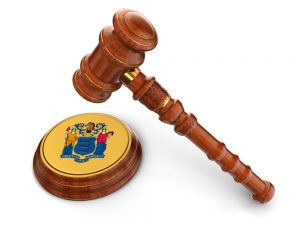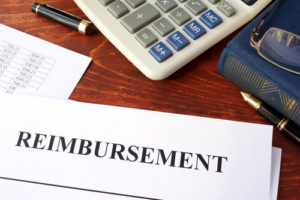 New Jersey is a confusing state when it comes to automobile insurance and PIP benefits. Every owner or registered owner of an automobile registered or principally garaged in New Jersey must have automobile liability insurance coverage insuring against loss resulting from liability for bodily injury, death, and property damage sustained by any person arising out of the ownership, maintenance, operation, or use of an automobile.[1] Automobile insurance is governed by the PIP statutes.[2] The insurance for “buses” is governed under § 17:1-6. All motor vehicles other than “automobiles” are required to provide “stranger pedestrian PIP” under § 17:28-1.3.
New Jersey is a confusing state when it comes to automobile insurance and PIP benefits. Every owner or registered owner of an automobile registered or principally garaged in New Jersey must have automobile liability insurance coverage insuring against loss resulting from liability for bodily injury, death, and property damage sustained by any person arising out of the ownership, maintenance, operation, or use of an automobile.[1] Automobile insurance is governed by the PIP statutes.[2] The insurance for “buses” is governed under § 17:1-6. All motor vehicles other than “automobiles” are required to provide “stranger pedestrian PIP” under § 17:28-1.3.
There are three (3) types of automobile insurance policies in New Jersey, each with different requirements and minimum limits: (1) Standard Automobile Insurance Policy; (2) Basic Automobile Insurance Policy, and (3) Special Automobile Insurance Policy (SAIP).
(1) Standard Automobile Insurance Policy
The Standard Policy provides for a number of different coverage options and the opportunity to buy additional protection. Most New Jersey drivers choose this policy. Standard policies must provide:
- Personal Injury Protection (PIP) coverage as low as $15,000 per person and as high as $250,000 or more for certain permanent or significant injuries. The insured may increase the PIP medical expense deductible from $250 to $500, $1,000, $2,000, or $2,500. This usually includes Income Continuation Benefits of $5,200; $100 per week for 52 weeks.
- Bodily Injury Liability coverage with minimum limits of $15,000 per person and $30,000 per occurrence, but as high as high as $250,000 for certain permanent or significant injuries, regardless of the selected limit.[3]
- Property Damage Liability. A minimum of $5,000 for damage to property in any one accident, but these limits can be as high as $100,000 or more.
- Collision coverage is available as an option.
- Comprehensive coverage is available as an option.
- Uninsured/Underinsured Motorist (UM/UIM) coverage is also available up to the amounts selected for liability coverage.
- Med Pay/Extended Medical Benefits Payment (EMB) coverage. As required by N.J.A.C. § 11:3-7.39(b), each policy form or endorsement covering an automobile as defined at N.J.S.A. § 39:6A-2 must include excess Med Pay coverage, corresponding to Section II and EMB coverage of the personal automobile policy. Insurers must include a minimum coverage of $ 1,000 and may offer coverage of $ 10,000.
- Death benefits for whatever amount of Income Continuation Benefits and Essential Service Benefits the deceased would have been eligible for but for his death.
- Essential Service benefits of $4,380; up to $12 per day.
- Funeral expense benefits of $1,000.
The insured also has options to include additional coverage in these policies.
(2) Basic Automobile Insurance Policy
The Basic Policy usually costs significantly less than a Standard Policy but provides limited benefits—just enough to meet the minimum insurance requirements of New Jersey law. The Automobile Insurance Cost Reduction Act[4] mandated that a Basic Policy be available to all drivers in addition to the Standard Auto Insurance Policy. The Basic Policy was designed to cost less than a Standard Policy but provides limited benefits. The Basic Policy includes the Limited Right to Sue option (Limitation on Lawsuit option).[5] Basic policies have the following requirements:
- Liability coverage – Optional bodily injury coverage of $10,000, mandatory property damage coverage of $5,000.
- No UM/UIM coverage is required.
- Personal Injury Protection (PIP) coverage. Minimum limits of $15,000 for medical expense benefits may be extended up to $250,000 in the event of certain injuries.
- No Med Pay / Extended Medical Benefits (EMB) coverage is required.
 The Basic Policy pays medical expenses of the insured, regardless of fault. However, it prevents an injured person from filing suit against a negligent driver. If a Basic Policy is selected, the bodily injury coverage requirements of the Standard Policy do not apply. Instead, the insured gets a Personal Injury Protection (PIP) policy, which pays the insured, those riding with him or her, and pedestrians for injuries, regardless of fault. PIP covers medical expenses of $15,000 per person but cannot exceed $250,000 per person for medical treatment for permanent/significant brain injury, spinal cord injury, disfigurement, or treatment of any other permanent or significant injuries. It limits property damage coverage to $5,000.[6] The insured can then choose whether he wants to purchase an optional bodily injury coverage policy of $10,000 per person.[7] Without this bodily injury liability coverage, the insured may be subject to liability for non-economic damages which are not covered by the Basic or Special Policy. This coverage is not available to motorcycle owners. Election of a Basic No-Fault Policy must be in writing and signed by the insured.[8] In addition, the Basic Policy offers no collision or comprehensive coverage for damage to one’s own vehicle.
The Basic Policy pays medical expenses of the insured, regardless of fault. However, it prevents an injured person from filing suit against a negligent driver. If a Basic Policy is selected, the bodily injury coverage requirements of the Standard Policy do not apply. Instead, the insured gets a Personal Injury Protection (PIP) policy, which pays the insured, those riding with him or her, and pedestrians for injuries, regardless of fault. PIP covers medical expenses of $15,000 per person but cannot exceed $250,000 per person for medical treatment for permanent/significant brain injury, spinal cord injury, disfigurement, or treatment of any other permanent or significant injuries. It limits property damage coverage to $5,000.[6] The insured can then choose whether he wants to purchase an optional bodily injury coverage policy of $10,000 per person.[7] Without this bodily injury liability coverage, the insured may be subject to liability for non-economic damages which are not covered by the Basic or Special Policy. This coverage is not available to motorcycle owners. Election of a Basic No-Fault Policy must be in writing and signed by the insured.[8] In addition, the Basic Policy offers no collision or comprehensive coverage for damage to one’s own vehicle.
(3) Special Automobile Insurance Policy (SAIP)
The Special Automobile Insurance Policy (SAIP) is an initiative to help make limited auto insurance coverage available to drivers who are eligible for Federal Medicaid with hospitalization.[9] Such drivers can obtain a medical coverage-only policy at a cost of $365 a year. The policy provides:
- No liability coverage.
- No UM/UIM coverage.
- Emergency Personal Injury Protection (PIP) coverage only for medical expense benefits up to $250,000 per person. Generally care “initiated at a hospital within 120 hours of the accident.” “Emergency care” means all medically necessary treatment of traumatic injury or medical condition manifesting itself by acute symptoms of sufficient severity such that absence of immediate medical attention could reasonably be expected to result in: death, serious impairment to bodily functions; or serious dysfunction of a bodily organ or part.”
- No Med Pay or Extended Medical Benefits (EMB) coverage is required.
Health Care Primary Option. One option available to New Jersey insureds is the ability to select his or her health care plan as primary and PIP as secondary – this is known as the “Heath Care Primary” option or “PIP-as-secondary” option. In 1990, the Legislature enacted the “Fair Automobile Insurance Reform Act” (FAIRA), which provided, among other reforms, an option to make the insured’s health insurance the primary source for payment of medical and hospital expenses. New Jersey residents are permitted to choose, on new or renewing automobile policies, whether primary coverage for medical expenses will be provided by the automobile insurer through the automobile policy’s PIP provisions (“traditional coverage”), or by a health insurer through one or more health benefits plans (“alternative coverage”).
When the Health Care Primary option is chosen, New Jersey law requires that the automobile insurer reduce the PIP provision premiums in recognition of the reduced potential for exposure with respect to payment of medical expenses. When the insured selects his auto coverage, he commits to utilize his health insurance plan as the primary payor of injuries sustained in auto accidents, in exchange for lower auto insurance premiums. This option is authorized by § 39:6A-4.3(d), which reads as follows:
(d) For policies issued or renewed on or after January 1, 1991, the option that other health insurance coverage or benefits of the insured, including health care services provided by a health maintenance organization and any coverage or benefits provided under any federal or State program, are the primary coverage in regard to medical expense benefits pursuant to section 4 of P.L.1972, c. 70 (C.39:6A-4). If health insurance coverage or benefits are primary, an automobile insurer providing medical expense benefits under personal injury protection coverage shall be liable for reasonable medical expenses not covered by the health insurance coverage or benefits up to the limit of the medical expense benefits coverage. The principles of coordination of benefits shall apply to personal injury protection medical expense benefits coverage pursuant to this subsection;
When selecting this option, the auto policy becomes secondarily, rather than primarily liable. If the health insurer denies the claim, the health care provider can bill the auto carrier directly. The health insurer must issue a “substantive” denial in order to trigger the PIP carrier’s obligation to pay. The principles of coordination of benefits applies to any PIP medical expense benefits coverage under this section. New administrative rules were enacted to address:
(1) the order of benefit determination under either the traditional or alternative coverage option selections;
(2) the provision of benefits for the insured when a dispute exists on the issue of primacy of coverage; and
(3) the calculation of benefits payable by the automobile insurer and health benefits provider under either the traditional or alternative coverage option selection.[10]
These new rules and amendments are also designed to make it clear that health benefits providers are prohibited from creating or perpetuating plans that deny benefits based on the existence of PIP benefits.
Only a New Jersey-licensed health insurer is required to accept this obligation. Medicare and Medicaid cannot be primary. An ERISA-governed Plan has the choice of whether or not to provide any coverage for auto accidents and if so, whether to be primary or secondary. If it is determined that the insured does not have a qualified health care primary policy, the PIP carrier will pay the medical bills to the extent that the insured has chosen any PIP coverage subject to an additional $750 deductible.
When a PIP carrier which has issued an auto policy in which the insured has designated its health insurer as primary for payment of medical expenses under § 39:6A-4.3(d), and the insured (or health care provider) recovers benefits directly from the PIP carrier, who inadvertently forgot that they were secondary, the PIP carrier does not have any right of recovery directly against the health insurance plan for claims paid voluntarily for which they are not liable for.[11] When a PIP-as-secondary insurer receives a claim eligible for primary coverage, it must deny coverage and send the insured a notice advising them to submit the claim to their health insurer.[12] The claimant’s private passenger automobile insurer should notify the insured, and any of the insured’s health care providers known to the automobile insurer, that the insured or provider should first submit the claim to the appropriate health plan for coverage.
 Reimbursements of payments incorrectly made by auto carriers are permitted by inter-company agreement or arbitration among PIP insurers under § 39:6A-11. However, health insurers are not subject to PIP arbitration.[13] New Jersey no-fault laws do not provide an enforcement mechanism that PIP carriers may use against health insurers. Rather, the COB regulations are enforced by the Commissioner of Banking and Insurance through the assessment of penalties.[14] Moreover, the COB scheme depends upon PIP insurers to deny claims falling under primary coverage, in order to notify the healthcare providers that the expenses must be submitted to the health insurer for payment. When a PIP carrier voluntarily pays a claim which it is only secondarily liable for, the Coordination of Benefits scheme breaks down, in that the provider remains unaware that the claim was improperly submitted, removing any incentive for the provider to pursue the health insurer. Prior to the enactment of the No-Fault law, subrogation claims amongst automobile insurers were permitted. A health insurer’s duty to process a claim does not arise until it has received a request for payment directly from the insured or a healthcare provider. A demand from the PIP carrier will not suffice.
Reimbursements of payments incorrectly made by auto carriers are permitted by inter-company agreement or arbitration among PIP insurers under § 39:6A-11. However, health insurers are not subject to PIP arbitration.[13] New Jersey no-fault laws do not provide an enforcement mechanism that PIP carriers may use against health insurers. Rather, the COB regulations are enforced by the Commissioner of Banking and Insurance through the assessment of penalties.[14] Moreover, the COB scheme depends upon PIP insurers to deny claims falling under primary coverage, in order to notify the healthcare providers that the expenses must be submitted to the health insurer for payment. When a PIP carrier voluntarily pays a claim which it is only secondarily liable for, the Coordination of Benefits scheme breaks down, in that the provider remains unaware that the claim was improperly submitted, removing any incentive for the provider to pursue the health insurer. Prior to the enactment of the No-Fault law, subrogation claims amongst automobile insurers were permitted. A health insurer’s duty to process a claim does not arise until it has received a request for payment directly from the insured or a healthcare provider. A demand from the PIP carrier will not suffice.
In Palisades Insurance Company v. Horizon Blue Cross Blue Shield of New Jersey, a New Jersey appellate court ruled that when the PIP carrier has notice[15] that the health insurance policy is asserting that it is not primary, it becomes obligated to provide primary coverage despite the insured’s policy designation as “Health Care Primary.”[16] At that point the PIP carrier becomes obligated to pay the primary coverage despite the “Health Care Primary” policy it issued. It’s recourse is not reimbursement from the health care policy; but rather, to recover premium reductions the insured saved by electing health as primary on his auto policy. The PIP carrier also could have requested that its insured pursue the health insurer’s internal appeals process or obtain an assignment of rights from the insured and pursued the appeal itself. In Palisades, the PIP carrier simply paid the claim no questions asked. The PIP carrier must either seek reimbursement of its payments from the health care provides it paid by mistake or obtain an assignment of its insureds’ rights. It may not recover the funds it paid toward expenses eligible for primary coverage directly from the health insurer. The court in Palisades also rules that the payments made by the PIP carrier were voluntary payments and that the Voluntary Payment Doctrine also prevents recovery by the PIP carrier in a health-insurer-to-PIP reimbursement case.
It is the Common Law rule that where a party, without mistake of fact, fraud, duress, or extortion, voluntarily pays money on a demand that is not enforceable against him, he may not recover it.[17] In this case, courts have held there is no “mistake of fact” because the insureds’ designation of health-as-primary on their policies provided plaintiff with notice that it was not obligated to pay the claims. There is no allegation of fraud or duress, and the PIP carrier simply claims it paid out of fear of prompt payment penalties. Any mistake made by the PIP carrier is considered a mistake of law instead. There is simply no obligation to pay.
For questions or issues regarding PIP reimbursement from health insurers where the Health Care Primary Option is chosen, please contact Catherine Dowie at cdowie@mwl-law.com. Catherine is located in MWL’s newest branch office in Boston, Massachusetts.
[1] N.J.S.A. § 39:6A-3.
[2] N.J.S.A. § 39:6A-4, et seq.
[3] Id.
[4] N.J.S.A. §§ 39:6A-1.1 to 32 (1998) (“AICRA”).
[5] N.J.S.A. § 39:6A-3.1.
[6] Id.
[7] N.J.S.A. § 39:6A-3.1(c).
[8] N.J.S.A. § 39:6A-3.2(a).
[9] N.J.S.A. § 39:6A-3.3 (2003).
[10] N.J.S.A. §§ 39:6A-1.1 to 32 (1998) (“AICRA”).
[11] Palisades Ins. Co. v. Horizon Blue Cross Blue Shield of New Jersey, 261 A.3d 369 (N.J. Super. 2021).
[12] N.J. Dep’t of Banking and Ins., Bulletin No. 05-25 (Dec. 5, 2007) (Available at: https://www.state.nj.us/dobi/bulletins/blt05_25.pdf).
[13] N.J. Mfrs. Ins. Co. v. Horizon Blue Cross Blue Shield of N.J., 959 A.2d 858 (N.J. Sup. 2008) (finding “neither the statute nor the implementing regulations contemplate that arbitration under N.J.S.A. 39:6A-5.1 will include health insurers”).
[14] N.J.A.C. § 11:3-37.13.
[15] In Palisades Insurance Company v. Horizon Blue Cross Blue Shield of New Jersey, the health insurer did not respond to letters from the PIP carrier advising that the PIP carrier had received claims. The PIP carrier argued that a simple failure to respond requires the health insurer to pay the claims.
[16] Palisades, supra.
[17] Cont’l Trailways, Inc. v. Dir., Div. of Motor Vehicles, 509 A.2d 769 (N.J. 1986).






